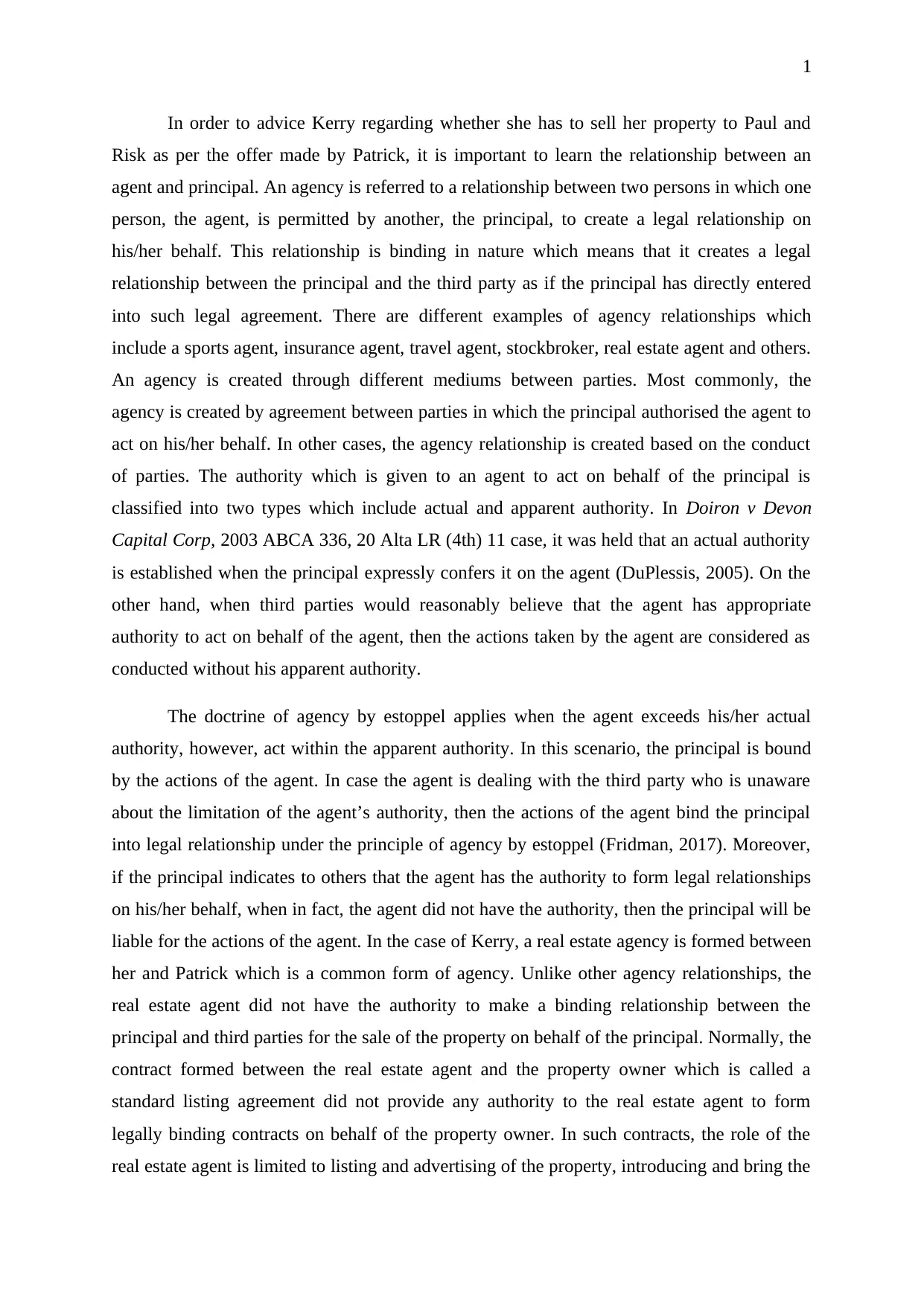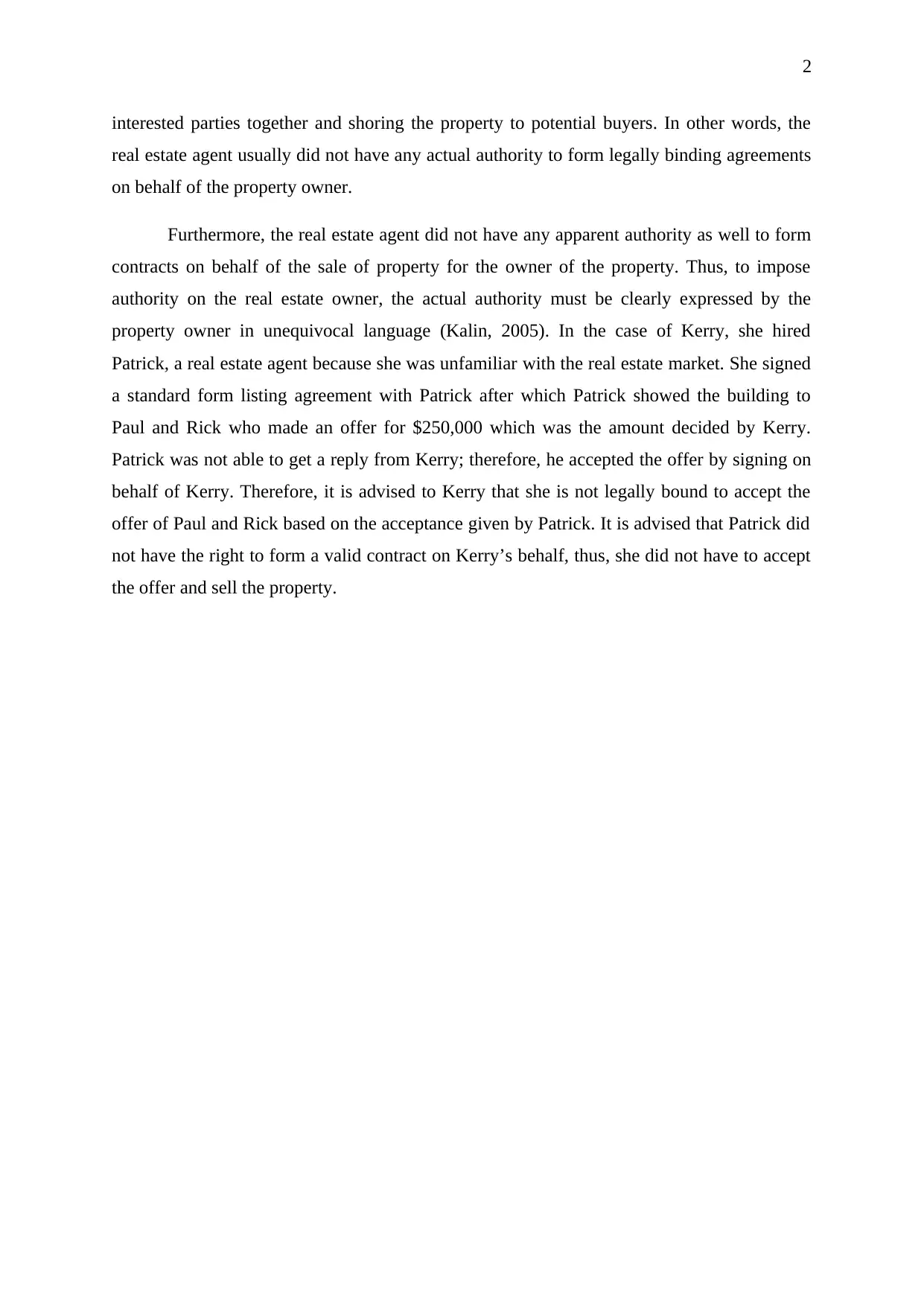Analysis of Agency Law: Kerry's Real Estate Contract Obligations
VerifiedAdded on 2023/06/04
|4
|890
|338
Case Study
AI Summary
This case study delves into the intricacies of agency law within a Canadian business context, specifically focusing on the relationship between a principal (Kerry) and an agent (Patrick, a real estate agent). It examines the concepts of actual and apparent authority, and the doctrine of agency by estoppel. The scenario involves Kerry hiring Patrick to sell her property, with Patrick accepting an offer on her behalf without explicit consent. The analysis concludes that Patrick lacked the authority to bind Kerry to the sale, advising her that she is not legally obligated to accept the offer. The study references relevant Canadian business law principles and case law, such as Doiron v Devon Capital Corp, to support its findings. Desklib offers a range of solved assignments and study tools to assist students in understanding complex legal concepts.
1 out of 4











![[object Object]](/_next/static/media/star-bottom.7253800d.svg)